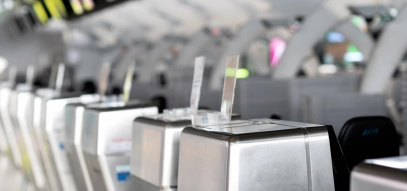This article aims to provide an overview of the taxation landscape for aircraft lessors in Ireland.
Corporation tax
Aircraft lessors typically establish a corporate entity in Ireland to conduct their leasing activities. Ireland's competitive corporation tax rate, currently at 12.5% (or 15% for members of MNEs impacted by Pillar 2), applies to trading income, which includes profits derived from leasing aircraft. This low tax rate contributes to the overall attractiveness of Ireland as a base for aircraft leasing operations.
Capital allowances
Ireland offers attractive capital allowances for aircraft lessors. Capital allowances are available for capital expenditure incurred on the purchase of aircraft, allowing lessors to offset a portion of their taxable profits over 8 years. Any excess capital allowances in a period can be grouped and used against other leasing income within the group.
Withholding tax
Ireland does not impose withholding tax on lease rentals paid to non-resident lessors. This exemption facilitates the free flow of funds between the lessee and lessor, contributing to the ease of doing business in Ireland. This favourable withholding tax treatment enhances Ireland's appeal as a global hub for aircraft leasing.
Double taxation agreements
Ireland has an extensive network of double taxation agreements (‘DTA’s) with numerous countries, mitigating the risk of double taxation for lessors. These agreements provide clarity on the taxing rights of both Ireland and the lessor's home jurisdiction, ensuring that income is taxed only once and promoting cross-border investment in the aviation sector.
Value-Added Tax
The Value-Added Tax (‘VAT’) treatment of aircraft leasing in Ireland is an essential consideration for lessors. Ireland applies the VAT rules of the lessor's jurisdiction, making it crucial for lessors to assess their VAT obligations based on the specific circumstances and agreements in place. Careful structuring of lease agreements can help optimize the VAT treatment for aircraft leasing transactions.
Transfer pricing considerations
Transfer pricing regulations are vital for multinational lessors operating in Ireland. These regulations ensure that transactions between related entities are conducted at arm's length, preventing the artificial shifting of profits. Aircraft lessors must adhere to these regulations to maintain compliance with OECD standards.
Conclusion
Ireland's taxation framework for aircraft lessors is designed to encourage investment and promote the growth of the aviation leasing sector. The combination of a favourable corporate tax rate, generous capital allowances, and a supportive legal environment positions Ireland as a preferred jurisdiction for aircraft leasing operations. As the aviation industry continues to soar, Ireland's commitment to providing a tax-efficient and stable platform for aircraft lessors solidifies its standing as a global aviation leasing hub.











